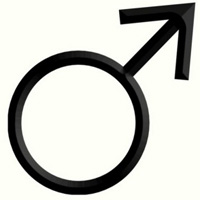Professional roles of female urologists: A webinar-based survey of perceptions and obstacles to career development

Accepted: October 26, 2021
All claims expressed in this article are solely those of the authors and do not necessarily represent those of their affiliated organizations, or those of the publisher, the editors and the reviewers. Any product that may be evaluated in this article or claim that may be made by its manufacturer is not guaranteed or endorsed by the publisher.
Authors
Background: Urology, traditionally a maledominated specialty, keeping pace with the quickly changing gender landscape, has been characterized by waves of feminization. This study aims to understand the perspectives of women urologists on the obstacles to their career development, and the impact of such hurdles on their professional roles in urological education, practice, and leadership.
Methods: 119 female urology residents/consultants were surveyed via a webinar-based platform, covering relevant questions on domains of Academia, Mentorship, Leadership, Parenting, and Charity. Statistical analysis was done using frequency distribution based on the responses.
Results: 46.8% of the respondents felt that there is an under-representation of women in academia. ‘Having a good mentor’ was the most important factor for a novice to succeed in academia (68%). The most important trait in becoming a good leader was ‘good communication skills’ (35%), followed by ‘visionary’ (20%). The greatest challenge faced by leaders in the medical field was considered as ‘time management’ (31.9%). Only 21.2% of the participants felt difficulty in having a work-personal life balance, whereas 63.8% of them found it difficult only ‘sometimes’. As a working parent, ‘the guilt that they are not available all the time’ was considered the most difficult aspect (59.5%), and ‘more flexible schedule’ was needed to make their lives as a working parent easier (46.8%). 34% of the respondents were affiliated with some charitable organizations. The biggest drive to do charity was their satisfaction with a noble cause (72.3%).
Conclusions: Need for increased encouragement and recruitment of females into urology, and to support and nurture them in their career aspirations.
How to Cite
PAGEPress has chosen to apply the Creative Commons Attribution NonCommercial 4.0 International License (CC BY-NC 4.0) to all manuscripts to be published.

 https://doi.org/10.4081/aiua.2021.4.455
https://doi.org/10.4081/aiua.2021.4.455




